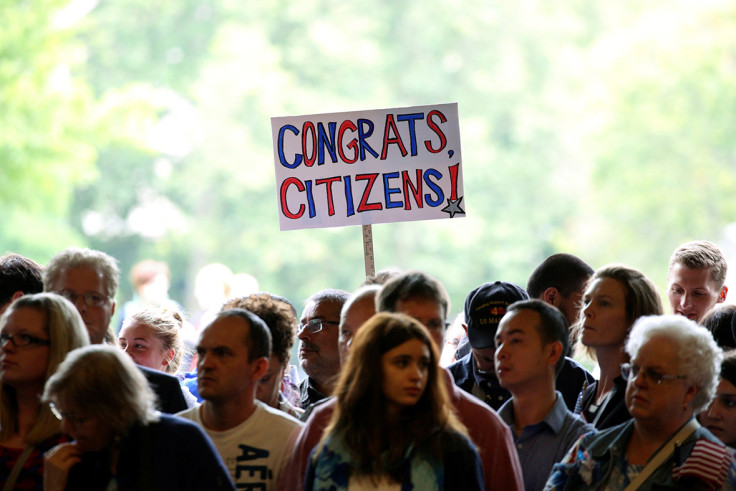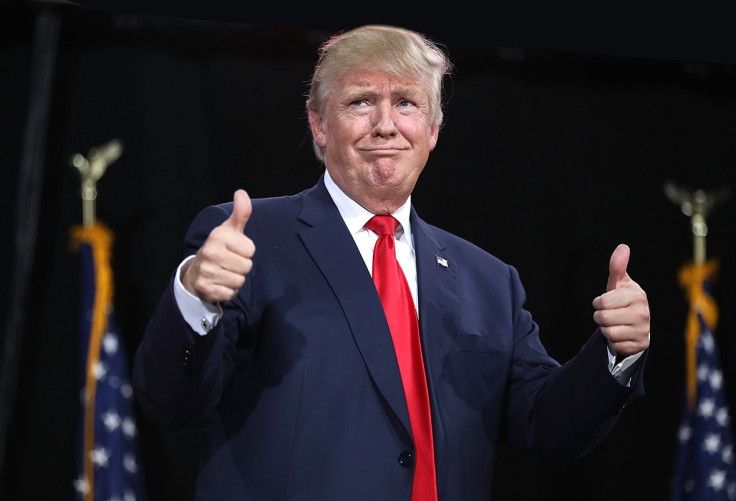Forget Donald Trump and Theresa May's rhetoric - we need more immigration, not less
Globalisation and global citizenship has made the world a better place.

Theresa May, Britain's new prime minister, declared recently in a speech that "if you believe you are a citizen of the world, you are a citizen of nowhere". Her views have been echoed across the Atlantic, where GOP candidate Donald Trump has vowed to erect a wall between the US and Mexico and "get the Mexicans to pay for it".
Suddenly, the benefits of the post-war world, in particular the end of the Cold War and the fall of the Soviet Union, are in danger of being lost. Nationalism is the new order of the day, it appears, with individual countries and citizens having fenced borders and restricted movement.
What is a citizen of the world anyway? Global citizenship can be best defined by two main principles: the freedom of mobility and a plurality of places to call home. A vote for Donald Trump on November 8 would turn both of those principles on their head.
He would take us back on an inward-looking trajectory, where borders would not only be better defined but fortified. Where everyone should live in their own "home", where just through an accident of birth, they happened to be born.
In one sense, May was correct, as the philosopher Kwame Anthony Appiah pointed out in this year's Reith Lecture. "Citizenship is a relationship between a person and a state. Given the absence of a world state, there is, strictly speaking, nowhere for a citizen of the world to be a citizen of," he said.
However, he added: "Real cosmopolitanism is not a privilege; it is an obligation. It does not belong to the rarefied circles of some frequent-flyer upper class. It belongs to anyone who cares about global justice, about the environment, about the alleviation of strife and carnage beyond our immediate national borders. A disease that starts, unnoticed, in an African forest can devastate a Manchester family; CO2 emissions from India can derange the weather around the Gulf Stream; an ideological pathology that incubates in schools halfway around the world can bring down jets and skyscrapers."
Like Uber or Airbnb, immigrant investor programs are disruptive in a good way.
In other words, a global citizen is not to be feared. Globalisation has become an integral part of modern day society, politics and economics. Millions of people have been raised out of poverty as a result. People, businesses and governments are unlikely to want to give up global mobility after decades of reaping its benefits. I suspect that while some countries will trumpet the need for border controls, others will need to remain open, because openness is one of their key commodities.
Not only do we succeed by being open, but all the major issues of today, such as climate change, terrorism, water and food security are cross border challenges. Water does not suddenly stop at an arbitrary border, drawn by a whim some hundred years ago. Growing crops to feed an increasing world is not achieved by turning inward, but by global trade.

My own story shows some of the benefits of being a global citizen. Born in Eastern Europe to Armenian parents, I was educated in North Africa, France and North America. Today I am a global citizen by choice. In Canada I launched the business that I run to this day, which helps people gain citizenship of other countries, thus allowing them access and freedom to travel.
My life under these new proposed changes of May and Trump would no longer be possible. In a Trump world, for example, immigrant investor programs, which encourage the inflow of qualified, skilled or rich immigrants, will be discouraged. This is regrettable, because not only do immigrants bring new ideas and energy, they also bring money to regions that sorely need it.
"Make America Safe Again" is a catchy slogan. But safe for who? And at what cost?
Like Uber or Airbnb, immigrant investor programs are disruptive in a good way. In the eastern Caribbean, for example, people who can afford either a real estate investment or donation can acquire citizenship. In the past ten years more than 10,000 people have become citizens of St Kitts & Nevis, in the process transforming its economy.
On the EU periphery, there may be a benefit. With a less accessible core in the face of an alienated Britain, and an increasingly nationalistic France, Germany and Central Europe, countries such as Cyprus, Greece, Bulgaria and Portugal may turn into a very convenient gateway to the new world. The keen eye of the European Commission, however, will not rest. Pressure is likely to increase for programs of EU member states to become lengthier, costlier and more selective.
"Make America Safe Again" is a catchy slogan. It does hold electoral potential and flies well with the average voter. But safe for who? And at what cost? When it comes to global citizenship, it would mean an America with fewer talented, skillful individuals building its economy and keeping it at the forefront in the majority of sectors. Albert Einstein was an immigrant, as was Christo the artist, and Steve Jobs' father. Can you imagine an America without Apple?
Armand Arton is the president of Arton Capital, and an ambassador of the global citizen movement. He is about to embark on a year-long quest to discover what it means to be a global citizen.
This article was amended on November 2.
© Copyright IBTimes 2024. All rights reserved.






















